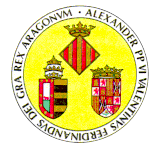History
The group of Dr. Pérez-Ortín has been working on the molecular biology of yeasts since 1992. From 1995 onwards, the work has been focused on yeast genomics; firstly on the genome sequencing project of Saccharomyces cerevisiae and later on the functional analysis projects, EUROFAN I + II, set within the framework of the European Union programs. Later, our group was involved in the development of the database of the yeast genome (CYGD European project), where we contributed the data of DNA chromatin immunoprecipitation and 3’ gene flanks. Our group has been the leader in Spain in the development of DNA chip technology, and we created the first DNA chip service in Spain in March 2000 (http://scsie.uv.es/chipsdna/). It was through this service that we developed the nylon macrochip genome of S. cerevisiae (1) with the collaboration of other Spanish groups. Our group has gained expertise in this subject from the sabbatical leave of Dr. Pérez-Ortín in the laboratory of Dr. J. Hoheisel at DKFZ (Heidelberg) in 1998 (2). Our group developed the method Genomic Run-On GRO in 2004 (3). This technique allows the assessment of the transcription rate (TR) and the stability of mRNA simultaneously.
Our genomic data and data from other Spanish groups is placed in a database created by our group which is located in the Bioinformatics Service of the University of Valencia (Valencia Yeast Database: http://vydbase.uv.es/).
In 2004, Dr. Paula Alepuz joined our group in the Department of Biochemistry and Molecular Biology at the University of Valencia. Her previous experience has been related to the osmotic stress response in S. cerevisiae and its control by the MAP kinase Hog1p. During her postdoctoral in the laboratory of Dr. G. Ammerer at the University of Vienna and the laboratory of Dr. F. Posas at the Universitat Pompeu Fabra, Dr. Alepuz demonstrated that Hog1, the yeast homologue of the human p38 kinase, is capable of binding to chromatin of the genes regulating, and therefore allowing, the recruitment of specific transcription factors, histone-modifying complexes and the RNA polymerase II itself (4,5,6). Since the formation of an independent group (within the main group of GFL), Dr. Alepuz has been focusing on the study of the post-transcriptional control of gene expression, mainly the stability and translation of mRNAs, in response to stress in S. cerevisiae (7.8). The group of Paula Alepuz maintains an important collaboration with the groups of Dr. Per Sunnerhagen and Dr. Jonas Warringer at the University of Goteborg (Sweden), where Dr. Alepuz had made several professional visits and is also involved in the teaching of graduate courses.
The GFL Group is a founding member of the "Structure of Interdisciplinary Research (ERI)" BioTecMed (http://www.uv.es/biotecmed), which comprises of several groups from the Faculty of Biology (University of Valencia) working in the areas of Molecular and Cellular Biology.
The GFL group is also a member of the Microcluster "Biotechnology and Biomedicine with Yeast Models (BBLM)” composed of about 25 labs in this field of study all from Valencia belonging to the University of Valencia (UV), the Polytechnic University of Valencia (UPV), Consejo Superior de Investigaciones Científicas (CSIC) and the Prince Felipe Research Center. The microcluster is part of the Campus of International Excellence "VLC Campus" (http://www.vlc-campus.com/).



